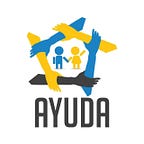On the morning of October 9, 2012, 15-year-old Malala Yousafzai had been shot by the Taliban on her way home from school. This, as we recall, had been because she had the audacity to speak out against the injustice inflicted on her fellow citizens, where they were denied basic human rights such as the right to education. She aroused a flurry of action, leaving behind a significant impact in her wake. But sadly, it had not been enough. Children today, in the countries in open conflict, continue being denied the basic necessities in life, education among them.
As a continuation of the efforts to raise awareness about the plight of million children across the world, United Nations General Assembly came to a unanimous decision on May 29, 2020, to declare September 9, 2020, as the International Day to Protect Education from Attack. The resolution was proposed by the state of Qatar, co-sponsored by 62 countries.
Across the world, 35 countries suffer from crises and often open conflict. Ignoring the age-old moral ethics of the war, school-going children often find themselves unwarranted victims of brutality by the warring parties. The groups of innocent, vulnerable children are easy targets to get a point across and require urgent action to safeguard the education itself. Furthermore, due to the COVID-19 pandemic, the schools and educational institutions remain temporarily closed and the day comes as a timely action to prevent the spread of illiteracy. The spread of conflicts also has a chance of abating with the public consensus and actions taken by the youth of today.
“Schools must remain safe places, free of conflict and violence,” said UNESCO Director-General Audrey Azoulay, welcoming the General Assembly decision. The Day is to draw attention to the plight of 75 million children and their rather urgent need for educational support, so as to give them a sporting chance of improving their situation in the future. It also expresses concern over the effect of living in open-conflict zones and their ability to access education with special needs. The pandemic has further hampered the already delicate educational system, presenting another problem to the precarious situation in war-affected countries. “Attacks on schools are a violation of humanity and basic decency. We must not allow these senseless attacks to destroy the hopes and dreams of a generation of children,” said UNICEF Executive Director Henrietta Fore.
The day thus marks the beginning of rigorous action by UNESCO and UNICEF alike. United Nations-affiliated countries have undertaken various activities to raise awareness and help those in need. The UN itself shall provide assistance to the education systems in need and mobilize action against senseless violence against students. This sends a clear message to the world regarding the importance of safeguarding schools as protection for students and educators alike as well as keeping it a top priority in public agenda by the respective governments. Education also remains a priority as the countries grapple with the deadly COVID-19 virus.
HH Sheikha Moza, who advocated for the importance of this day during the 2019 General Assembly High-level week and Social Forum for the Human Rights Council, said, “Amid this global pandemic, it is vital to ensure that the diseases of armed conflict and illiteracy that were prevalent before do not spread further.”
- Arka Gohil (CC Member, Ayuda NGO)
